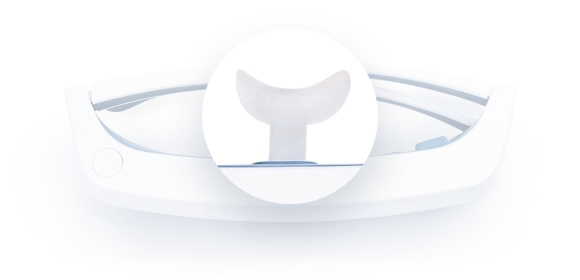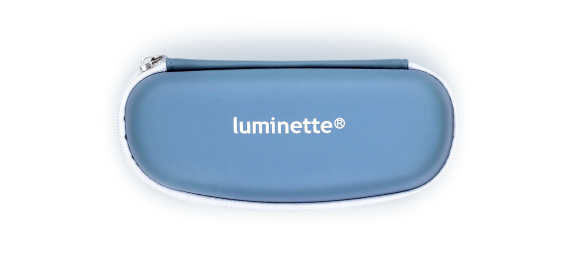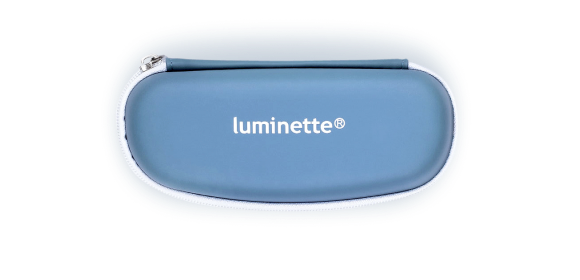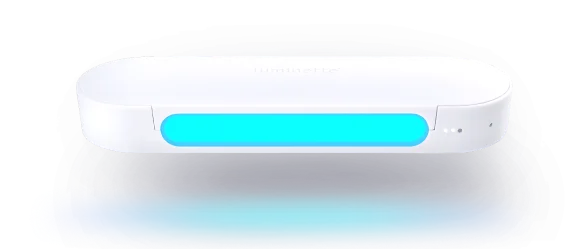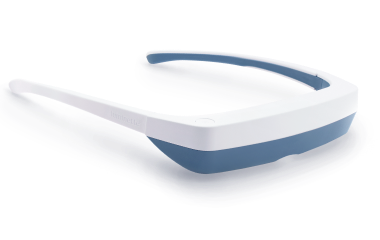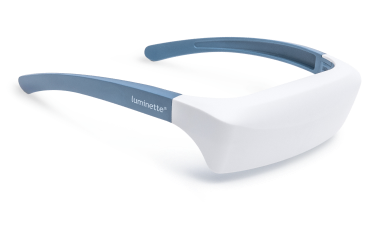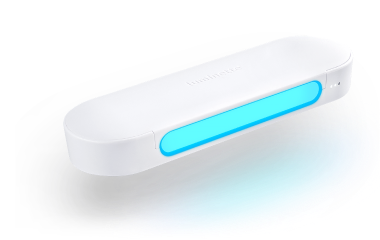Вы замечаете, что ворочаетесь ночью, ваш ум гонится за мыслями, а сердце колотится? Вы не одиноки. Многие взрослые испытывают тревогу перед сном — состояние, которое может серьёзно повлиять на качество вашей жизни. Понимание того, что такое тревога перед сном и почему она возникает, — первый шаг к возвращению спокойных ночей и улучшению психического здоровья. В этом блоге мы рассмотрим причины, симптомы и решения тревоги перед сном, предложив практические стратегии, которые помогут вам справиться с этим часто подавляющим состоянием.
Что такое тревога перед сном?
Тревога перед сном, также называемая сомнифобией или тревогой, связанной со сном, — это тип тревожного расстройства, который нарушает способность засыпать и оставаться во сне, тем самым влияя на общее качество сна. Это состояние может проявляться в различных формах: от чувства беспокойства и неспособности расслабиться перед сном до интенсивных панических атак ночью. Люди с тревогой перед сном часто оказываются в замкнутом круге беспокойства о невозможности уснуть, что усугубляет трудности с расслаблением и засыпанием. Тревога перед сном может включать как физические, так и психологические симптомы, включая постоянные стремительные мысли, мышечное напряжение, мешающее комфорту, учащённое сердцебиение, имитирующее панические ощущения, затруднённое дыхание и всепроникающие чувства страха или ужаса. Эти симптомы не только нарушают сон, но и могут привести к хроническому недосыпанию, влияя на повседневное функционирование и общее самочувствие. Выявление и устранение коренных причин тревоги перед сном необходимо для улучшения здоровья сна и общего качества жизни.
Симптомы тревоги перед сном
Распознавание симптомов тревоги перед сном важно для эффективного решения и управления этим состоянием. Общие симптомы включают:
- Трудности с засыпанием: Навязчивые мысли и беспокойства могут затруднять засыпание, даже при усталости.
- Частые пробуждения ночью: Повторные пробуждения и трудности с возвращением ко сну могут привести к нарушению отдыха.
- Беспокойство: Ощущение беспокойства и трудности в успокоении стремительных мыслей перед сном могут усугублять проблемы со сном.
- Физические симптомы: К ним могут относиться учащённое сердцебиение, чрезмерное потоотделение, мышечное напряжение и даже затруднённое дыхание, часто связанные с тревогой.
- Раздражительность и изменения настроения: недостаток сна может привести к раздражительности, перепадам настроения и снижению способности справляться с повседневными стрессами.
Эти симптомы могут варьироваться по степени тяжести и частоте у разных людей. Если вы постоянно замечаете, что они нарушают ваш сон и повседневную жизнь, важно принять соответствующие меры.
Типы тревоги, связанной со сном
Тревога, связанная со сном, не является однородной проблемой; она может проявляться в различных формах в зависимости от индивидуальных стрессоров и основных проблем. Она может проявляться как:
- Предсонная тревога: характеризуется накоплением беспокойств, которые усиливаются по мере приближения времени сна, затрудняя расслабление и подготовку ко сну.
- Ночная тревога: проявляется в пробуждении ночью с подавляющими тревожными мыслями, которые мешают вернуться ко сну.
- Тревога после сна: приводит к стрессу и беспокойству из-за недостаточного отдыха в течение ночи, часто вызывая чувство страха перед наступающим днем.
Распознавание конкретного типа тревоги, связанной со сном, с которым вы сталкиваетесь, может способствовать более индивидуальному подходу к лечению, возможно, включая техники релаксации, когнитивно-поведенческие стратегии или профессиональную помощь.
Что такое сомнифобия?
Сомнифобия — это состояние, характеризующееся постоянным страхом заснуть и оставаться во сне. Эта фобия может значительно влиять как на психическое, так и на физическое здоровье человека, поскольку сон жизненно важен для общего благополучия. Как и при большинстве фобий, у людей с сомнифобией могут проявляться один или несколько симптомов по мере приближения времени сна или во время нахождения в постели, когда они пытаются заснуть:
- Может возникать чрезмерное потоотделение, вызывающее дискомфорт и тревогу.
- Дрожь может присутствовать, когда тело реагирует на стресс, связанный с предстоящим сном.
- Учащенное сердцебиение может усиливать чувство паники.
- Одышка часто сопровождает эти симптомы, усиливая общее состояние дискомфорта.
Заметным симптомом сомнифобии является сильное желание избегать сна любой ценой, часто в ущерб здоровью. Такое избегание может создавать порочный круг, когда недосып усиливает тревогу и страх, еще больше укрепляя фобию. В результате люди с сомнифобией могут испытывать усталость, раздражительность и трудности с концентрацией в течение дня.
Еще одним заметным симптомом сомнифобии является сильное желание пациента избегать сна любой ценой, в ущерб своему здоровью.
Что вызывает сомнифобию?
Коренная причина большинства фобий неясна, и то же самое относится к сомнифобии, что делает её по сути трудно диагностируемой.
Тем не менее, сомнифобия может быть симптомом других проблем. Например, человек с расстройством ночных кошмаров и посттравматическим стрессовым расстройством (ПТСР) скорее всего будет избегать сна любой ценой, чтобы не испытывать кошмары, которые заставляют его заново переживать травматические события.
Кроме того, сон заставляет некоторых людей чувствовать себя уязвимыми. Поэтому существует также страх быть атакованным или поддаться угрожающим жизни проблемам со здоровьем.
Изолированный сонный паралич также является потенциальным фактором риска сомнифобии. Изолированный сонный паралич — это состояние, при котором человек временно не может двигаться при пробуждении, несмотря на осознание окружающей среды. Такие эпизоды могут усиливать страх и нервозность, связанные со сном.

Как понять, что у вас сомнифобия?
Как уже упоминалось, фобии сложны и трудно диагностируются из-за их запутанной природы и уникальности опыта каждого человека. Эти интенсивные страхи часто проявляются в различных психологических и физических реакциях, что делает точную диагностику необходимой для эффективного лечения. Однако Диагностическое и статистическое руководство (DSM) предлагает структурированный подход, описывая критерии диагностики фобий, включая сомнифобию — интенсивный страх сна. Этот страх может быть настолько сильным, что нарушает повседневное функционирование.
Основные моменты этих критериев включают:
- Значительный страх или тревога, непосредственно связанная с фобией, в данном случае — с актом сна, что может привести к повышенному уровню стресса и избеганию.
- Страх и тревога, испытываемые ночью или в ожидании сна, сохраняются длительное время, обычно более шести месяцев, что указывает на хроническую проблему, а не временную тревогу.
- Люди активно пытаются избежать фобии различными способами, например, изменяя режим сна или условия, что может ещё больше усугубить состояние.
- Фобия приводит к значительному стрессу и ухудшению качества жизни человека, влияя на личные отношения, рабочую деятельность и общее психическое здоровье.
- Отсутствуют другие разумные объяснения симптомов, такие как диагноз других психических расстройств, например, социального тревожного расстройства, что гарантирует, что фобия не является симптомом другой основной проблемы.
Понимание этих критериев важно для специалистов в области психического здоровья, чтобы обеспечить соответствующие вмешательства и поддержку для тех, кто борется с фобиями.
Можно ли вылечить сомнифобию?
Нет лечения, назначаемого специально для лечения сомнифобии. Психиатры обычно используют комбинацию различных поведенческих терапий и медикаментов для управления тревожностью перед сном и сомнифобией.
Распространённые методы включают назначенные лекарства, экспозиционную терапию, десенсибилизацию и переработку движением глаз (EMDR) и когнитивно-поведенческую терапию (КПТ).
Почему возникает тревожность перед сном?
Причины тревожности перед сном сложны и многообразны, охватывая ряд психологических и физических факторов. Понимание этих факторов может дать ценные сведения для управления и облегчения тревожности перед сном.
Психологические факторы
Психологические факторы играют значительную роль в тревоге сна, часто коренясь в эмоциональных и психических проблемах. Распространённые психологические причины включают:
- Генерализованное тревожное расстройство (ГТР): Люди с ГТР часто испытывают чрезмерную и хроническую тревогу по поводу различных аспектов жизни, от работы и отношений до здоровья и финансовых проблем. Эта постоянная тревога может затруднять расслабление, вызывая нарушения сна.
- Стресс: Высокий уровень стресса, вызванный требовательной работой, сложными отношениями или личными проблемами, может проявляться в виде тревоги, особенно при попытке расслабиться ночью. Неспособность ума отключиться может не давать заснуть, усугубляя тревогу.
- Травматические события: Прошлые травмы и неразрешённые эмоциональные переживания могут всплывать в тихие ночные моменты, вызывая стресс и тревогу, которые нарушают сон. Кошмары или флэшбэки могут усугублять эту проблему.
Устранение этих основных психологических факторов с помощью терапии, практик осознанности или техник самопомощи может значительно снизить тревогу сна. Когнитивно-поведенческая терапия (КПТ) показала особую эффективность в помощи людям управлять тревогой и улучшать режим сна.
Физические факторы
Физические факторы также могут способствовать тревоге сна, часто исходя из образа жизни или медицинских состояний. К ним могут относиться:
- Кофеин и алкоголь: Употребление стимуляторов, таких как кофеин, содержащийся в кофе, чае и некоторых газированных напитках, может негативно влиять на сон, повышая бодрствование. Аналогично, хотя алкоголь изначально может вызвать сонливость, он нарушает циклы сна и увеличивает ночные пробуждения, что приводит к усилению тревоги.
- Плохая среда для сна: Неудобный матрас или подушка, чрезмерный шум от близлежащего транспорта или соседей, а также неправильное освещение, например, слишком яркий свет от электронных устройств, могут мешать расслабиться и спокойно заснуть.
- Медицинские состояния: Хронические болевые состояния, астма или другие проблемы со здоровьем, такие как апноэ сна, могут усугублять тревогу и затруднять сон. Дискомфорт и прерывания, вызванные этими физическими недугами, могут привести к повышенному уровню тревожности перед сном.
Выявление и устранение этих физических факторов путем создания благоприятной среды для спокойного сна может значительно улучшить качество сна. Это может включать корректировку гигиены сна, такую как установление регулярного режима отхода ко сну, ограничение времени перед экраном перед сном и создание комфортного и успокаивающего спального пространства.
Хронический стресс и затяжной эмоциональный багаж
Стресс, будь то из-за работы, отношений или других жизненных обстоятельств, может вызвать ночную тревогу, затрудняя засыпание или поддержание сна.
Вы собираетесь лечь спать и вдруг вспоминаете, что нужно оплатить аренду, а у вас ещё нет всей суммы. Или вспоминаете важный рабочий проект, который ещё не завершён, несмотря на приближающийся срок.
И вот так ваш организм активирует механизм стрессовой реакции, включая выделение гормонов, таких как адреналин и кортизол. Наличие этих гормонов сигнализирует мозгу оставаться настороже, затрудняя засыпание.
Кроме того, неразрешённые чувства, такие как гнев, печаль или беспокойство, могут проявляться как тревога при попытке уснуть, вызывая быстрые мысли и беспокойство.
Согласно исследованию связи между эмоциями и сном, учёные обнаружили, что «чем выше уровень гнева и ниже уровень контроля, тем дольше время засыпания», термин, описывающий, сколько времени человеку требуется, чтобы заснуть.
Тревога
Иногда тревога по поводу сна начинается умеренно и нерегулярно. Однако повторяющаяся тревога по поводу сна может выйти из-под контроля.
Например, когда тревога по поводу сна становится ночной рутиной, вы можете начать беспокоиться о своей неспособности заснуть, создавая порочный круг, в котором тревога о сне порождает ещё большую тревогу, ещё больше нарушая сон.
Мысли о возможных последствиях недосыпания, таких как снижение работоспособности на работе или ухудшение когнитивных функций, в основном вызывают тревогу. Всё это может усугубить тревогу, связанную со сном, особенно у людей с высокой чувствительностью к тревоге.
Согласно исследованиям, люди с высокой чувствительностью к тревоге уделяют больше внимания симптомам тревоги и интерпретируют их как опасные или катастрофические, что приводит к таким реакциям, как панические атаки и пробуждение с тревогой посреди ночи.
Чрезмерное воздействие синего света, потребление кофе и другие нарушения
Воздействие синего света от телефонов и компьютеров перед сном или в постели может нарушить естественный цикл сна и бодрствования организма, затрудняя переход от бодрствования к сну.
Организм выделяет мелатонин перед сном, чтобы сигнализировать всем органам, что пора спать. Воздействие света от экранов замедляет выработку мелатонина организмом и, следовательно, время засыпания.
Стимуляторы, такие как кофеин, особенно перед сном, могут препятствовать способности вашего организма расслабиться и заснуть. Исследования показывают, что употребление кофе за шесть часов до сна все еще может влиять на ваш сон.
Шум, свет, температура и другие факторы, такие как матрас и постельные принадлежности в вашем окружении, также могут нарушать сон и способствовать тревоге, связанной со сном. Многочисленные исследования подтвердили это.
Состояния здоровья
Психические и физические состояния здоровья могут способствовать тревожности сна. Люди, страдающие любым из тревожных расстройств, особенно подвержены этому. Более того, тревожность и расстройства сна тесно взаимосвязаны.
Примеры тревожных расстройств, приводящих к трудностям со сном, включают генерализованное тревожное расстройство (ГТР), ПТСР, паническое расстройство и обсессивно-компульсивное расстройство (ОКР). Например, ГТР значительно влияет на начало сна.
Хроническая боль, респираторные расстройства, такие как апноэ сна, расстройства сна, например хронические проблемы со сном, и неврологические состояния также могут мешать сну и усугублять тревожность. До 86% пациентов с хронической болью страдают от различных нарушений сна, что в конечном итоге может привести к тревожности сна.

Условия окружающей среды
Хаотичная или стрессовая домашняя обстановка может затруднять расслабление и отдых перед сном, способствуя тревожности сна. Примером стрессовой среды может быть место, напоминающее о прошлых травматических событиях.
Аналогично, ваша спальня может стать стрессовой средой, если вы занимаетесь такими делами, как работа или просмотр социальных сетей в постели. Стресс, связанный с работой, может переноситься на время отхода ко сну, затрудняя расслабление и засыпание. Особенно это актуально для удаленных работников.
Подумайте об этом минуту: прокручивая ленту в социальных сетях, вы с большой вероятностью столкнетесь с чем-то захватывающим, страшным или стрессовым. Захватывающий контент стимулирует мозг и не дает уснуть.
Страшный контент может усиливать вашу тревогу, заставляя бояться сна, а стрессовый контент, как мы уже говорили, может вызывать реакции, которые затягивают начало сна.
Давление современной жизни
В современном мире существует ожидание, что вы должны быть постоянно доступны.
Некоторые рабочие динамики требуют больше, чем традиционная 40-часовая рабочая неделя, и работа в компании с такой культурой может создавать давление, заставляя вас оставаться на связи даже в ущерб вашему сну, что способствует развитию тревожности сна.
Даже социальные сети оптимизированы так, чтобы удерживать вас в сети постоянно — от вкладок «Для вас» до алгоритмов, которые подбирают контент, связанный с вашими интересами.
Все это затрудняет установление границ между всем, что требует вашего внимания, что приводит к увеличению стресса и тревоги, особенно когда вы пытаетесь расслабиться перед сном.
Практикуйте техники релаксации
Методы релаксации помогают снизить и контролировать стресс. Практика этих техник перед сном может расслабить тело и ум, позволяя быстрее заснуть.
Некоторые методы, которые вы можете использовать для преодоления тревоги перед сном, включают:
- Глубокое дыхание: Эта техника релаксации включает медленные, глубокие вдохи, которые активируют естественную реакцию расслабления организма. Убедитесь, что вы вдыхаете через нос и выдыхаете через рот.
- Медитация осознанности или направленное воображение: Эта техника помогает сосредоточиться на настоящем моменте или успокаивающих образах и уменьшает поток навязчивых мыслей. Для максимальной пользы вам понадобится тихая обстановка.
Как справиться с тревогой перед сном
Управление тревогой перед сном требует сочетания техник релаксации, терапии и, в некоторых случаях, медикаментозного лечения. Решая основные причины тревоги и применяя эффективные стратегии, человек может улучшить качество сна и общее самочувствие. Давайте обсудим эти решения подробнее.
Техники релаксации
Включение техник релаксации в ваш распорядок дня может значительно помочь в управлении тревогой перед сном. Эти методы помогают успокоить ум и тело, снижая стресс и способствуя спокойствию перед сном. Рассмотрите возможность освоения следующих техник:
- Глубокое дыхание: Сосредоточьтесь на медленных, глубоких вдохах, чтобы успокоить нервную систему. Глубоко вдыхая через нос и медленно выдыхая через рот, вы можете вызвать реакцию расслабления организма, что приводит к снижению частоты сердечных сокращений и артериального давления.
- Прогрессивная мышечная релаксация: Напрягайте и расслабляйте разные группы мышц, чтобы снять физическое напряжение. Эта техника предполагает систематическую работу с мышцами всего тела, начиная с пальцев ног и продвигаясь вверх, что помогает выявить зоны напряжения и сознательно их расслабить.
- Медитация осознанности: Используйте осознанность, чтобы оставаться в настоящем моменте и уменьшать поток навязчивых мыслей. Сосредотачиваясь на настоящем, вы можете развить осознание и принятие, снижая влияние тревожных мыслей и способствуя спокойному состоянию ума.
Эти техники могут помочь установить режим отхода ко сну, который способствует расслаблению и подготовке ума к спокойному сну. Со временем они могут стать неотъемлемой частью ежедневных привычек, значительно улучшая качество сна.
Когнитивно-поведенческая терапия бессонницы (КПТ-Б)
Когнитивно-поведенческая терапия при бессоннице (CBT-I) — это высокоэффективное вмешательство для управления тревогой, связанной со сном. Этот терапевтический подход включает структурированную программу, направленную на замену негативных мыслей и поведения положительными. Основные компоненты CBT-I включают:
- Выявление и замена негативных мыслительных шаблонов: Оспаривая эти мысли, человек может разорвать цикл тревоги и развить более позитивный настрой.
- Формирование здоровых привычек сна: Это включает установление постоянного графика сна и сокращение времени перед экраном перед сном. Регулярный режим сна сигнализирует организму подготовиться к отдыху, а уменьшение времени перед экраном снижает воздействие синего света, который может мешать выработке мелатонина.
- Разработка стратегий совладания с тревогой и стрессом: CBT-I предоставляет инструменты для эффективного управления стрессовыми факторами, снижая их влияние на сон.
Когнитивно-поведенческая терапия при бессоннице (CBT-I) доказала свою эффективность в помощи людям преодолевать тревогу, связанную со сном, без зависимости от медикаментов, обеспечивая навыки на всю жизнь для поддержания здоровья сна.
Медикаменты
В некоторых случаях медикаментозное лечение может быть необходимо для борьбы с тревогой, связанной со сном, особенно если другие методы оказались недостаточно эффективными. Консультация с врачом поможет рассмотреть такие варианты, как:
- Рецептурные снотворные, обеспечивающие кратковременное облегчение: Они могут помочь установить регулярный режим сна, пока применяются другие методы лечения.
- Противотревожные препараты для лечения основных тревожных расстройств: Такие препараты помогают справляться с генерализованной тревогой, которая часто нарушает сон.
- Натуральные добавки, такие как мелатонин или корень валерианы: Эти альтернативы могут естественным образом поддерживать сон и часто предпочитаются за минимальные побочные эффекты.
Медикаментозное лечение следует рассматривать как дополнительную стратегию и всегда обсуждать с врачом для обеспечения безопасности и эффективности. Сотрудничество с медицинским специалистом поможет разработать комплексный план, который наилучшим образом соответствует индивидуальным потребностям.
Используйте устройства для светотерапии, такие как Luminette
Очки для светотерапии Luminette излучают свет с определённой длиной волны, имитирующей естественное солнечное освещение. Этот тщательно откалиброванный свет вызывает в организме реакцию, схожую с воздействием солнечного света, предлагая множество преимуществ для вашего циркадного ритма и режима сна. Циркадный ритм — это внутренний процесс, регулирующий наш цикл сна и бодрствования, реагируя на восход и заход солнца. Для оптимального циркадного ритма жизненно важно регулярно ежедневно подвергаться воздействию естественного солнечного света, что помогает синхронизировать биологические часы с природной средой.
С заходом солнца ваш циркадный ритм запускает секрецию мелатонина — гормона, который способствует переходу от бодрствования к сну. Эта секреция обычно начинается примерно за два часа до сна, что приводит к повышению уровня мелатонина в крови. Повышенный уровень мелатонина важен для обеспечения спокойного сна и плавного перехода от бодрствования к глубокому сну.
Однако отсутствие регулярного воздействия солнечного света может нарушить ваш циркадный ритм, выводя его из синхронизации. Несинхронизированный циркадный ритм может привести к таким проблемам, как снижение уровня энергии в течение дня и трудности с засыпанием ночью. Длительное нарушение также может повлиять на общее самочувствие и когнитивные функции.
Исследования показывают, что использование очков для светотерапии Luminette приводит к "значительным улучшениям в экспериментальной группе по задержке начала сна, качеству сна и снижению дневной сонливости." Эти очки разработаны так, чтобы быть удобными и эффективными, что делает их доступным решением для тех, кто сталкивается с нарушениями циркадных ритмов или недостатком солнечного света из-за образа жизни или географического положения.

Примите правила хорошей гигиены сна
Если вы задаётесь вопросом, как избавиться от сильной тревоги ночью, отличным началом будет внесение изменений в образ жизни.
Соблюдение правил гигиены сна, таких как фиксированный график сна и бодрствования и ночные ритуалы, может помочь снизить тревожность перед сном и улучшить отдых без необходимости принимать снотворные.
Вы можете встроить выбранную технику расслабления в свой режим сна, чтобы превратить её в привычку.
Другие полезные советы для снижения тревожности перед сном включают:
- Практикуйте управление временем: Разбивайте задачи на управляемые части и выполняйте их в порядке приоритета, чтобы уменьшить чувство перегруженности и предотвратить ночные переживания из-за незавершённой работы.
- Устанавливайте границы: Установите границы между работой и личными обязанностями, чтобы они не вторгались в ваше время сна. Научитесь говорить «нет» обязательствам, которые могут подождать до следующего дня. Установка границ включает в себя избегание электронных устройств, таких как смартфоны, планшеты или компьютеры, как минимум за час до сна.
- Избегайте стимуляторов, таких как кофе и алкоголь, за несколько часов до сна.
- Ограничьте дневной сон до менее чем 1 часа и избегайте его после 15:00.
- Избегайте больших, тяжёлых приёмов пищи и чрезмерного потребления жидкости перед сном, чтобы избежать дискомфорта и частых ночных пробуждений для мочеиспускания.
- Старайтесь получать не менее 30 минут солнечного света ежедневно.
Вывод: Тревога во сне нарушает сон, но с ней можно справиться
Эффективное управление тревогой во сне включает понимание её триггеров, которые могут включать стресс, неразрешённые эмоции и факторы окружающей среды, такие как воздействие синего света и шум. Включая техники релаксации, используя световые очки Luminette, создавая благоприятную для сна обстановку и поддерживая гигиену сна, вы можете облегчить тревогу во сне и улучшить качество отдыха. Если тревога во сне начинает значительно влиять на вашу повседневную жизнь и благополучие, важно обратиться за профессиональной помощью. Рассмотрите наши световые очки Luminette как часть вашего пути к снижению тревоги во сне и улучшению качества сна.
Часто задаваемые вопросы
Что такое тревога во сне?
Тревога во сне — это чувство стресса, беспокойства или страха, которые мешают человеку заснуть, оставаться во сне или получить полноценный отдых. Она может проявляться в виде трудностей с засыпанием, быстрого потока мыслей перед сном, частых пробуждений или беспокойного сна.
Как избавиться от тревоги во сне?
Вы можете остановить или уменьшить тревогу во сне, устраняя основные стрессоры или леча психические или физические проблемы со здоровьем, вызывающие её. Примерами основных стрессоров могут быть смена работы, если ваша текущая работа является причиной вашего состояния.
Принятие здоровых привычек сна и изучение техник релаксации — другие методы снижения тревоги во сне.
Что ещё важнее, крайне важно обратиться за профессиональной помощью, если ваша тревога во сне начинает влиять на качество вашей жизни, включая, но не ограничиваясь, здоровьем и продуктивностью на работе.
Что вызывает тревогу во время сна?
Множество факторов могут вызывать тревогу, которую вы чувствуете перед сном или во время сна. Стресс и беспокойства играют значительную роль. Другие причины тревоги во сне включают:
Привычки образа жизни: Слишком много времени перед экраном, употребление большого количества кофеина или отсутствие регулярного режима сна могут затруднить переход от бодрствования к сонливости.
Проблемы со здоровьем: Хроническая боль, затруднённое дыхание или некоторые заболевания мозга также могут вызывать тревогу ночью.
Проблемы с психическим здоровьем: Если у вас есть тревожность или вы пережили что-то травматическое, это может повлиять на ваш сон.
Если вы часто просыпаетесь ночью с чувством тревоги, обращение к врачу может помочь определить причину.
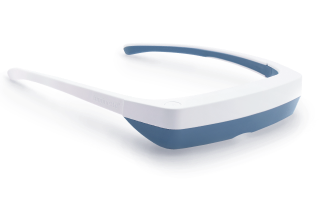
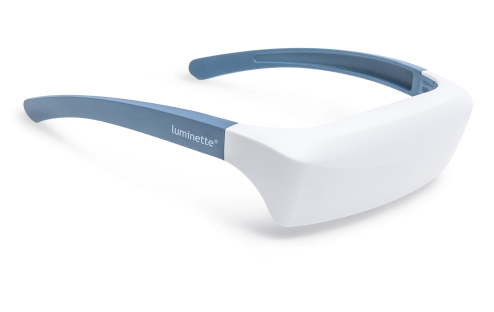
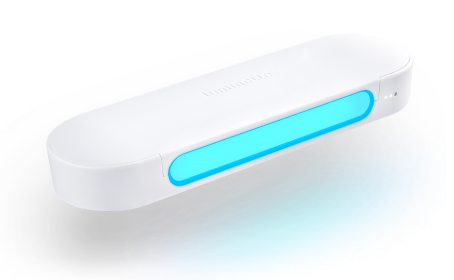
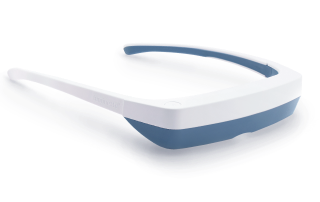
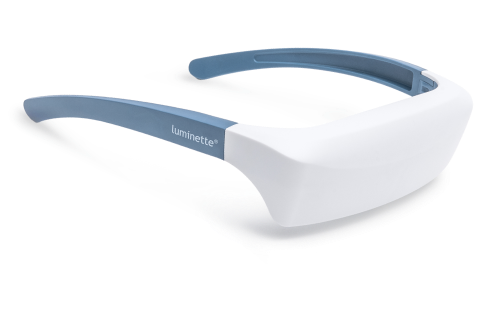
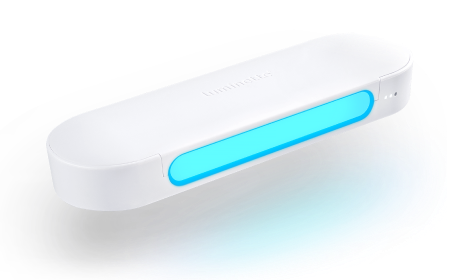
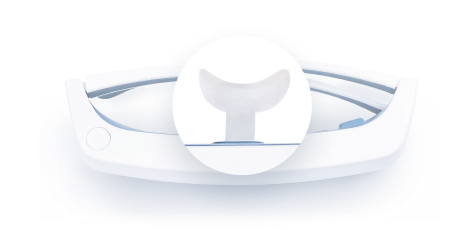
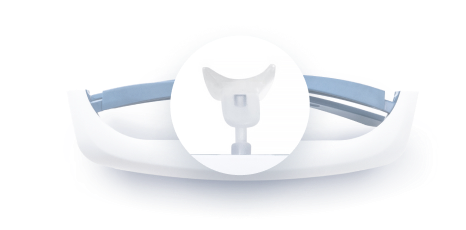

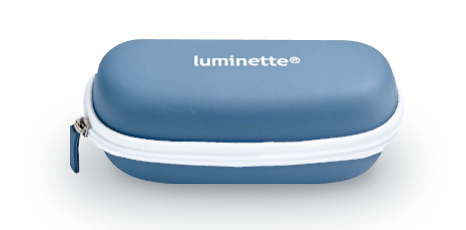
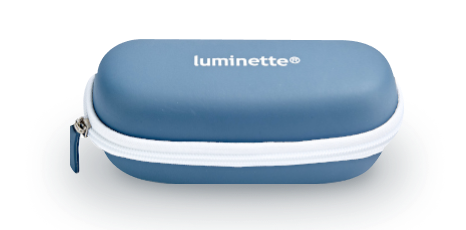
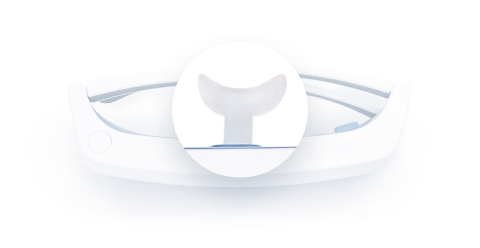
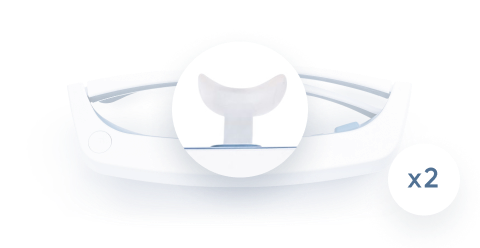
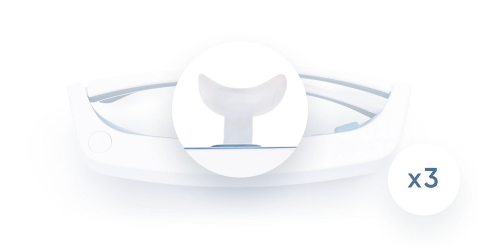
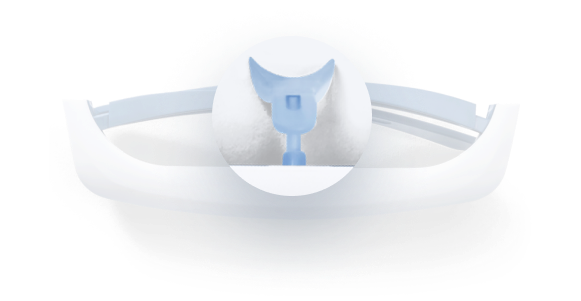
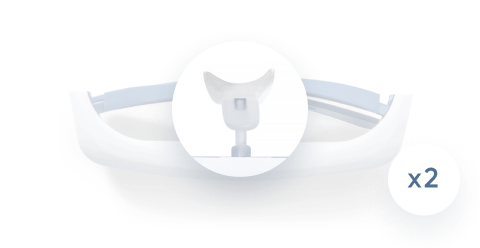
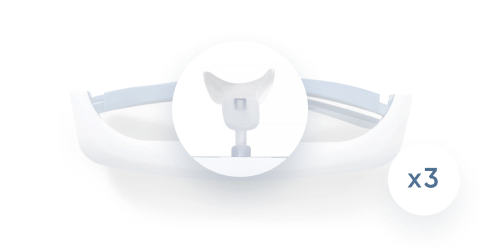
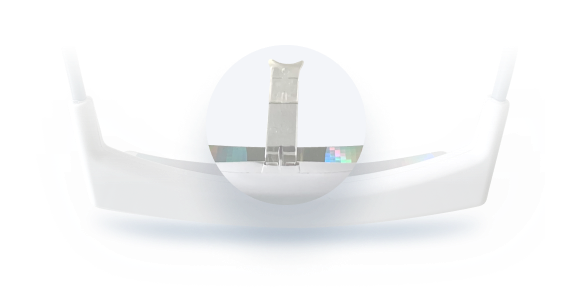


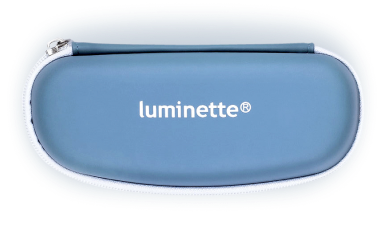
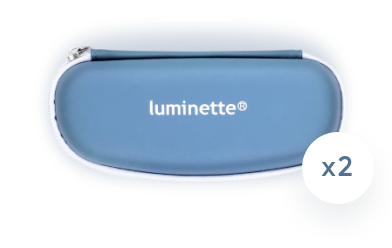
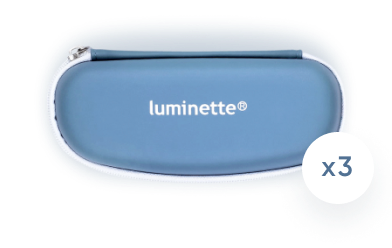
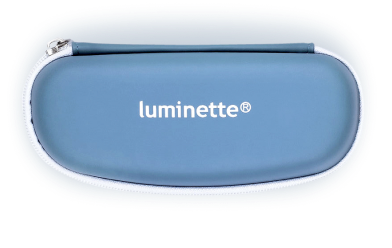
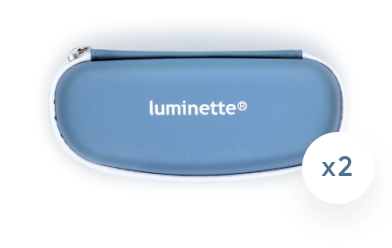
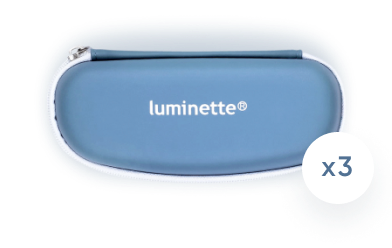












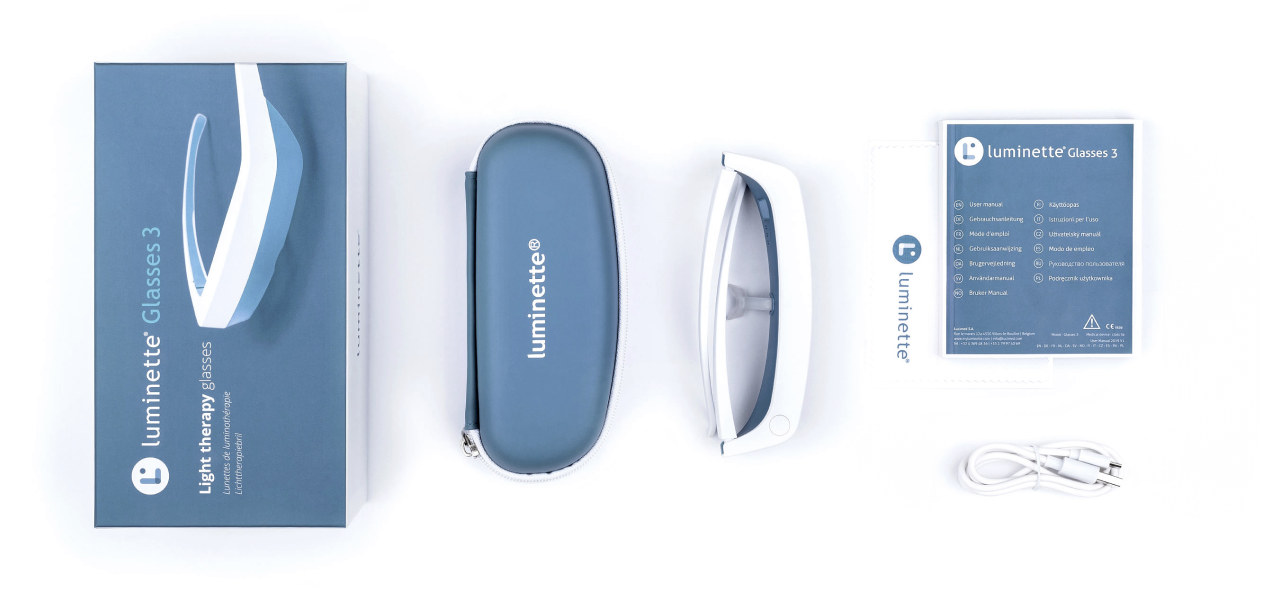

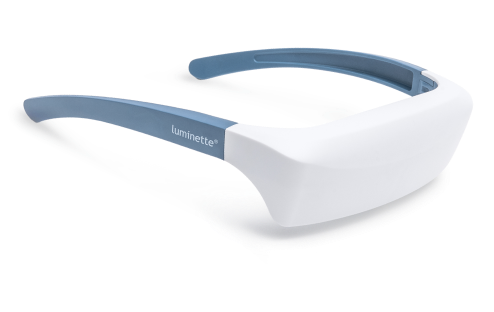
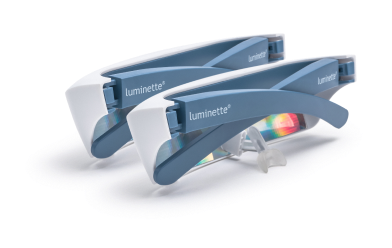

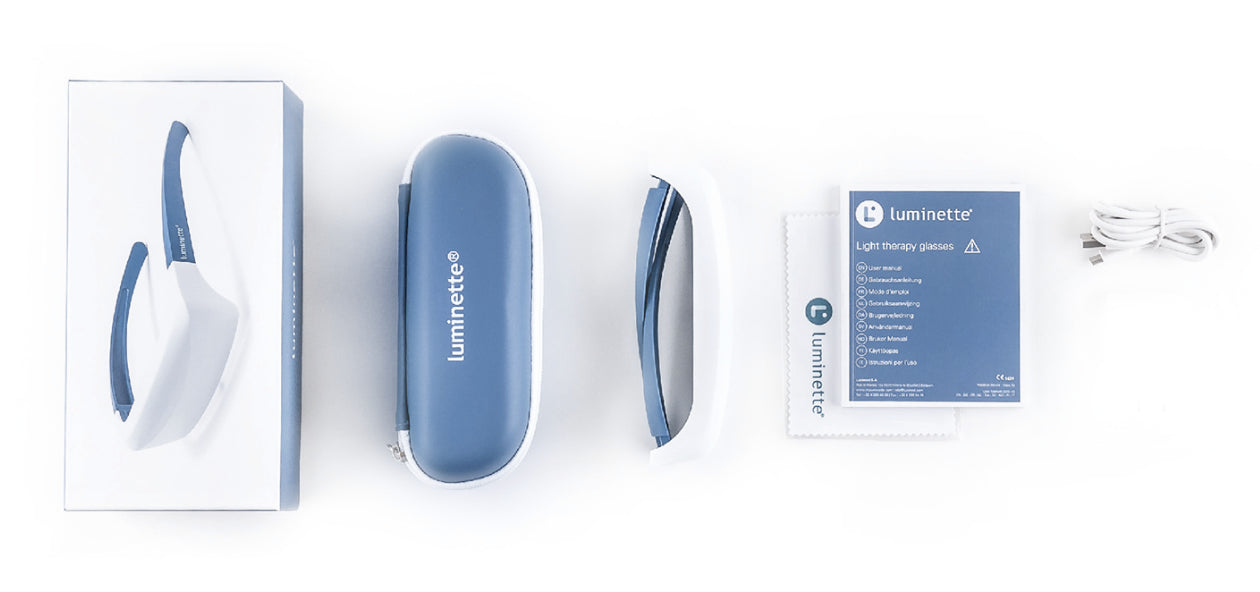
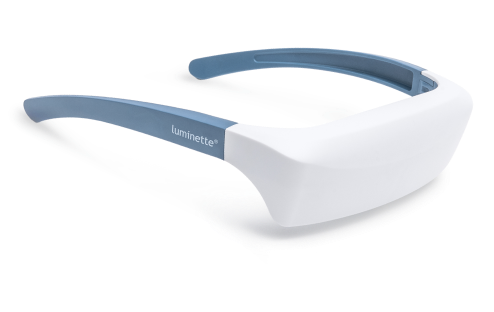
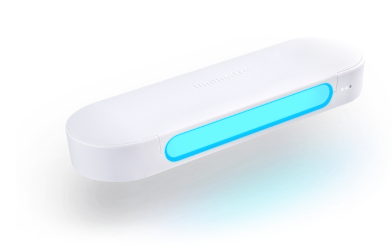
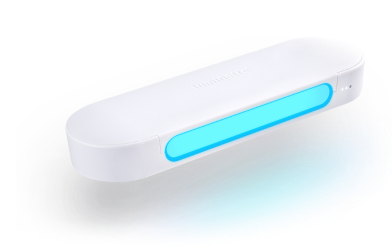
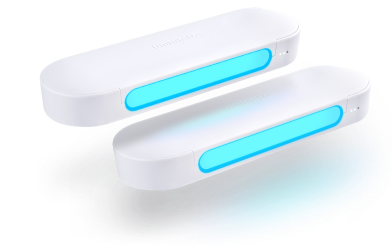
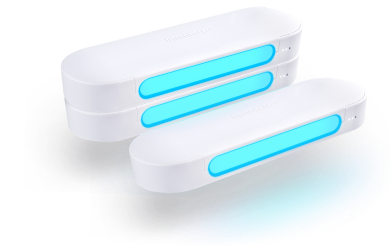
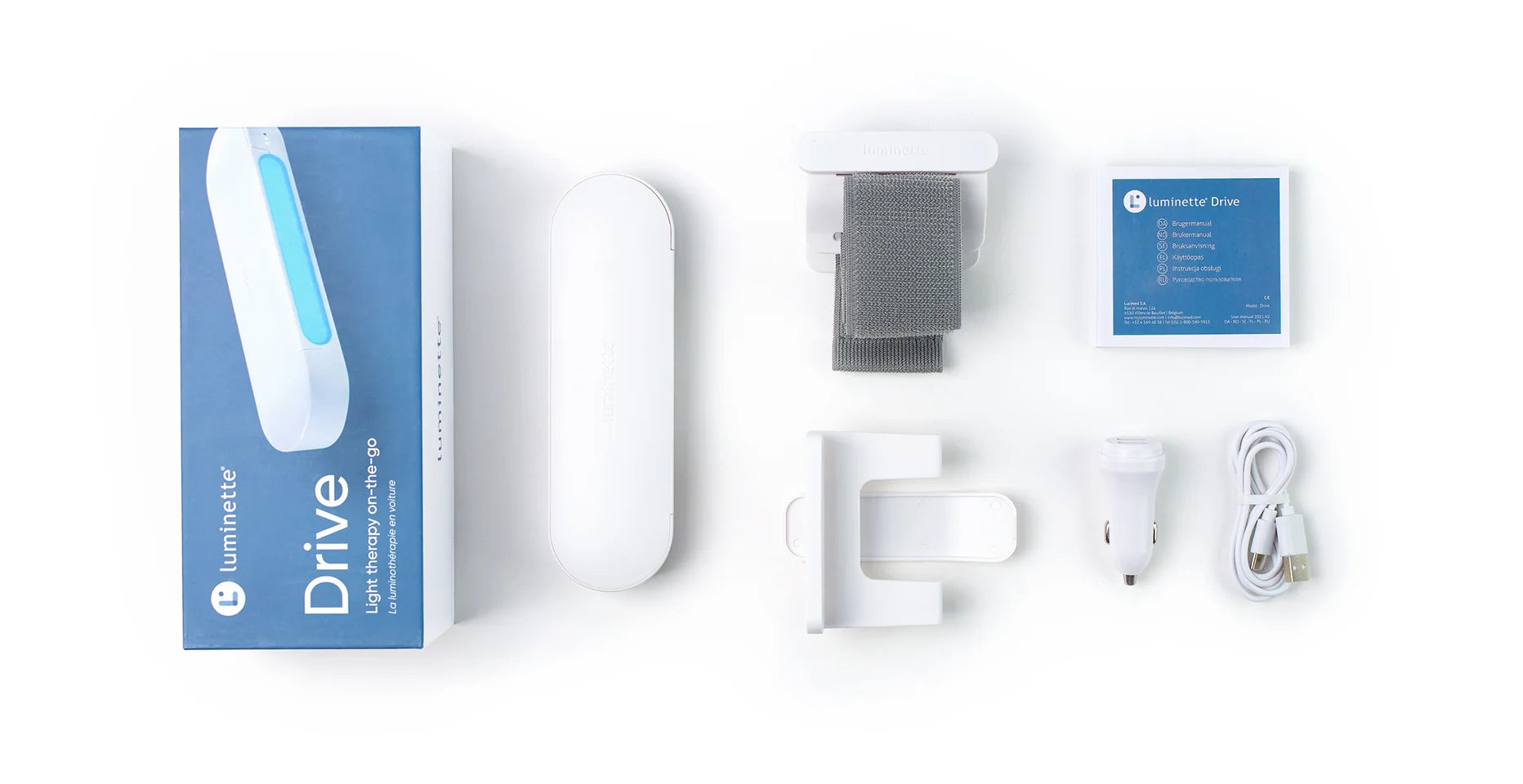

 Обратите внимание
Обратите внимание







